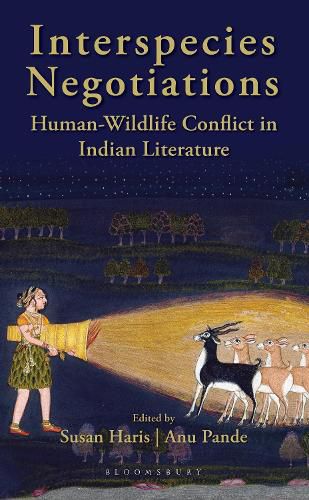Readings Newsletter
Become a Readings Member to make your shopping experience even easier.
Sign in or sign up for free!
You’re not far away from qualifying for FREE standard shipping within Australia
You’ve qualified for FREE standard shipping within Australia
The cart is loading…






The escalation of human-wildlife conflict alongside calls for stricter wildlife management and policy interventions reveals that such conflicts cannot be explained solely by species behaviour or environmental disruption. Rather, they are deeply social and political phenomena rooted in contestations over land use, governance, and resource distribution. Yet, social science accounts often fail to acknowledge wildlife's agency and responsiveness to anthropogenic change, reducing them instead to mere victims of human agendas. What, then, could an alternative approach look like if it goes beyond framing human-wildlife encounters as conflict, factors in the ecological, political, and ethical complexities of coexistence with wildlife in a rapidly transforming landscape, and recognises and contends with the agency of all animals concerned, human and nonhuman? Interspecies Negotiations: Literature and Human-Wildlife Conflict in India brings together a compelling collection of literary analyses that explore how contemporary Indian literature reflects and reimagines the fraught entanglements between humans and wildlife. The essays in this volume offer a nuanced and interdisciplinary reading situated at the intersections of literature, ecology, and postcolonial critique by engaging with two key questions: What does it mean to live with wildlife in postcolonial India? How do literary narratives illuminate the affective and ethical dimensions of interspecies encounters?
$9.00 standard shipping within Australia
FREE standard shipping within Australia for orders over $100.00
Express & International shipping calculated at checkout
The escalation of human-wildlife conflict alongside calls for stricter wildlife management and policy interventions reveals that such conflicts cannot be explained solely by species behaviour or environmental disruption. Rather, they are deeply social and political phenomena rooted in contestations over land use, governance, and resource distribution. Yet, social science accounts often fail to acknowledge wildlife's agency and responsiveness to anthropogenic change, reducing them instead to mere victims of human agendas. What, then, could an alternative approach look like if it goes beyond framing human-wildlife encounters as conflict, factors in the ecological, political, and ethical complexities of coexistence with wildlife in a rapidly transforming landscape, and recognises and contends with the agency of all animals concerned, human and nonhuman? Interspecies Negotiations: Literature and Human-Wildlife Conflict in India brings together a compelling collection of literary analyses that explore how contemporary Indian literature reflects and reimagines the fraught entanglements between humans and wildlife. The essays in this volume offer a nuanced and interdisciplinary reading situated at the intersections of literature, ecology, and postcolonial critique by engaging with two key questions: What does it mean to live with wildlife in postcolonial India? How do literary narratives illuminate the affective and ethical dimensions of interspecies encounters?